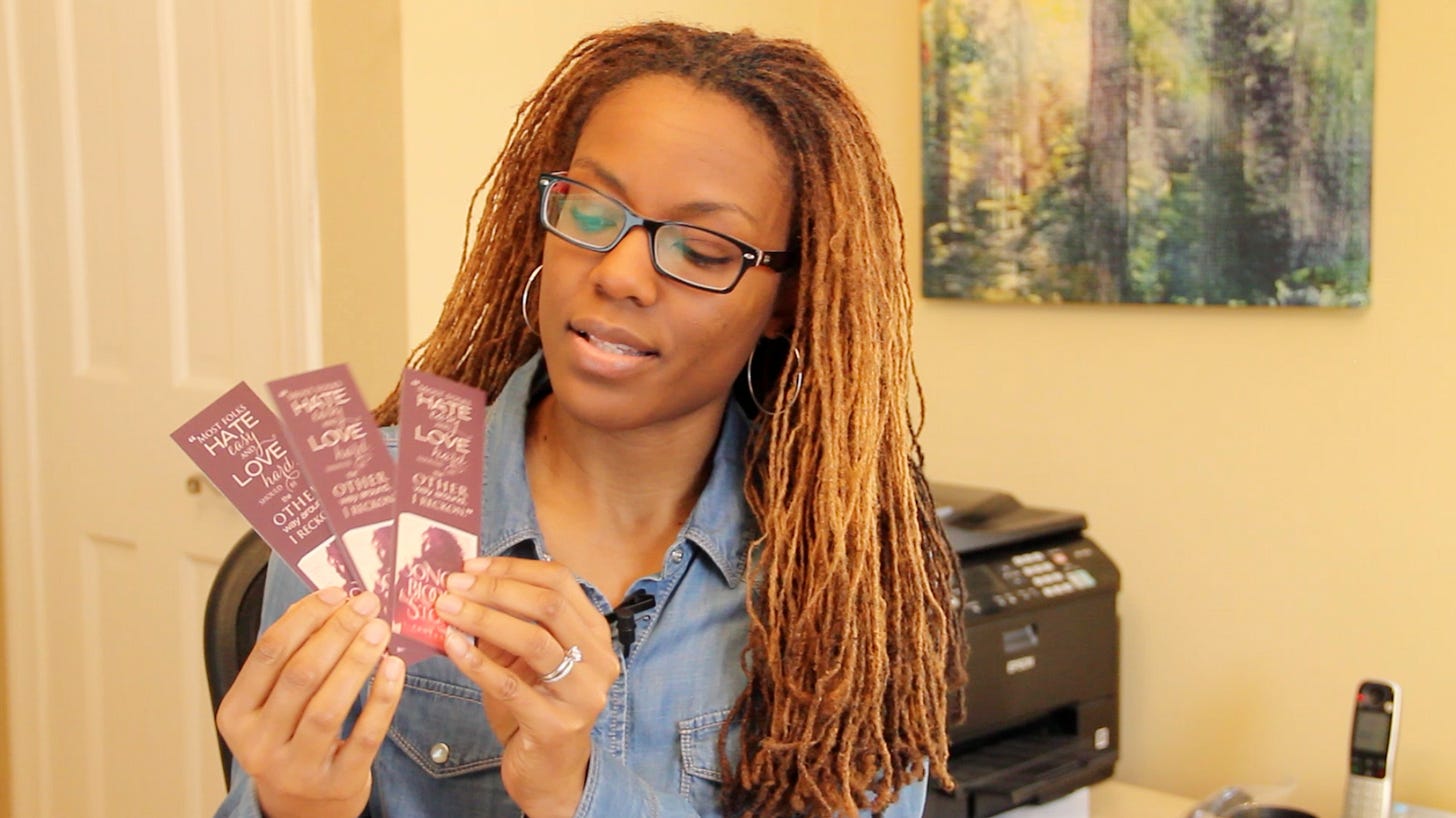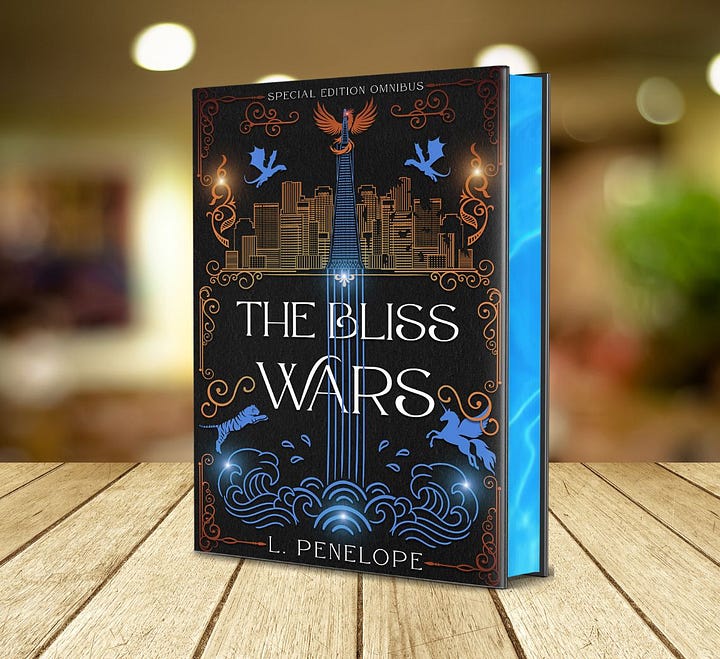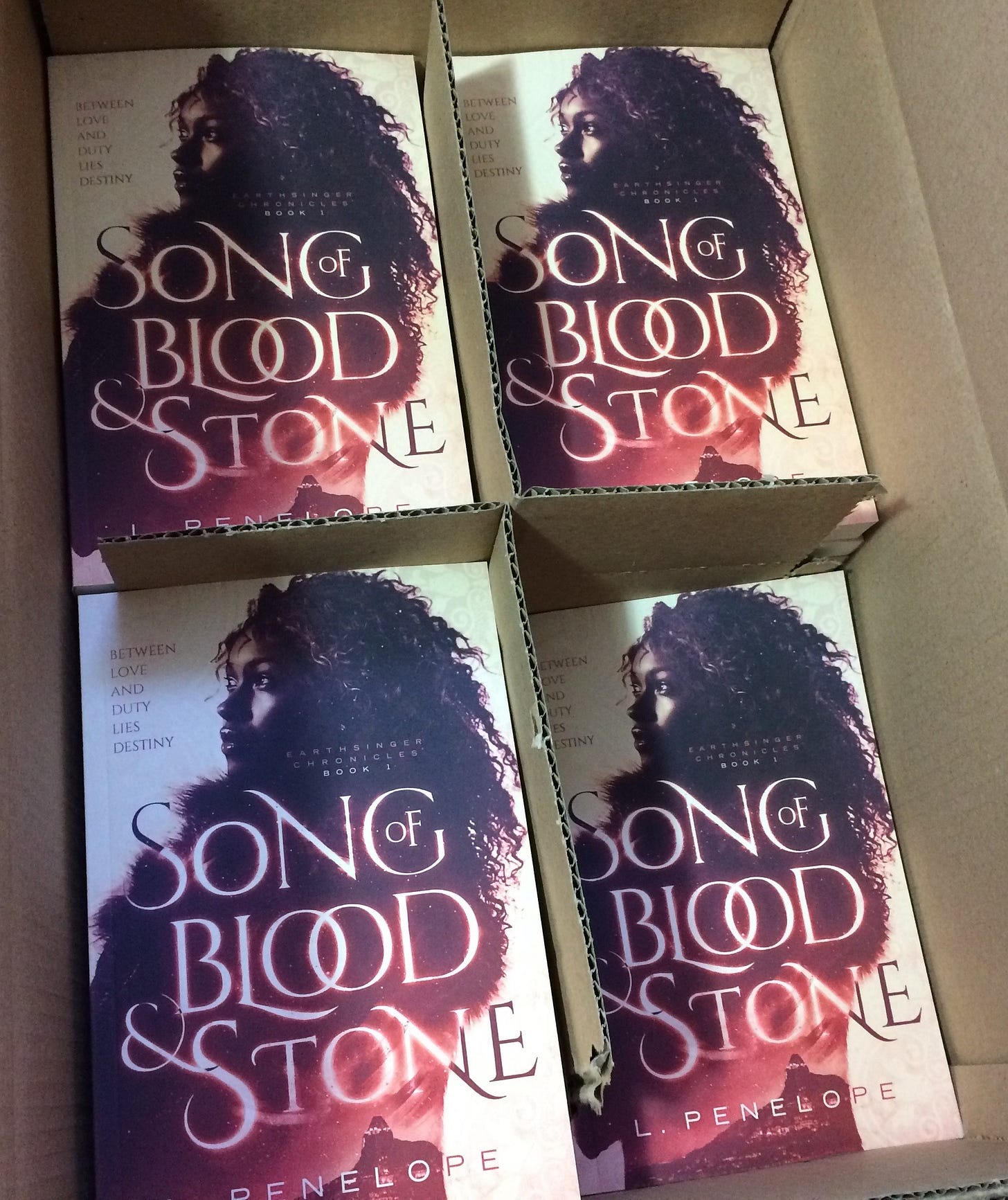
Hello friend, 👋🏾
This year marks a decade since I first entered the crazy world of publishing. I self-published the first version of my first novel, Song of Blood & Stone, in January 2015. Ten years! That’s a small human who knows how to multiply and divide.1
A novel set in 2015 would practically be a historical. Skinny jeans were still in style (right?). Hamilton was in the nascent stages of taking over the world. The new Star Wars trilogy hadn’t disappointed us yet. We were getting worried about Game of Thrones, but it hadn’t gone totally left yet. It feels both like five minutes and five centuries ago.
In that time, I’ve collected a few lessons. So here are ten of them. Shared with love. And occasional exasperation.
1. Be Flexible
Publishing is like fashion—blink and suddenly everyone’s wearing jeans five sizes too big and launching serialized stories on platforms you’ve never heard of. Learning to roll with the punches will save your sanity.
Your publishing path, your agent, editor, retailers, social media platforms… they will change. It’s okay. Pivoting isn’t failure—it’s required.
2. Don’t Be a Jerk
Publishing is people. Readers, authors, editors, agents, booksellers, that one Instagram follower who signal boosts every single post… it’s all people. Even if you never meet them face to face, remember we’re all humans. So be kind, be genuine, be yourself (unless yourself is an ass, then be quiet). And don’t be afraid to ask for help.
Also, don’t be afraid to go places, if possible, and meet people. Positive interactions both in person and online have yielded me more opportunities than I can count. As a lifelong violent introvert, I started pushing myself very early in my publishing career to be more comfortable talking to people and speaking in public.
And even if you can never imagine yourself one day going on stage to give a keynote speech at a writing conference, at least go to a conference. Meet some people. Smile at them. Talk with them at lunch. If they’re a writer, statistically speaking, they are likely just as uncomfortable as you are.
3. Find Your People
People like us who spend countless hours alone writing need a crew. A coven. A pod. A squad. Whatever you call it, find a community. Having folks around you who get it and can cheer you on, share resources, listen to your rants about algorithms, and remind you that you’re not alone is like a warm, weighted blanket wrapped around you. Publishing can be lonely—don’t let it be.
This relates to lesson #2: to find your people, you have to go places and engage. If doing so physically isn’t feasible, try to go to an online event that has breakout sessions or social events where you can connect with other humans. Join organizations that meet in person or online. I pushed myself to do some things that scared me, and ten years later I can definitely say they have made a tremendous difference in my career and life overall.
4. Prioritize Your Writing (Do It First)
The best advice I ever got was “write first.” I still do it first, or as close to first as possible. Creative energy is a finite daily resource, and mine is best mined before the rest of the day takes over. If your chronograph is different, you may do better in the evening…
However, if you think you’re an evening writer, but you haven’t written in six months because you’re always too tired after the day, then you may need to try something different. Waking up early to write before starting the workday is the only way I completed my first novel.
5. Be Gentle With Yourself
Creative work is soul work. Publishing is hard. We’re putting pieces of ourselves out for public consumption and sometimes the industry will chew up your feelings and spit them back with a rejection letter. Or a 1-star review. Things won’t always go your way and it’s all too easy to connect our creativity with who we are as people. Separate your identity from your output. You are not your word count. You are not your advance or your sales numbers or your publication history. Be kind to yourself. You deserve it.
6. Run Your Own Race
Write the stories only you can write. This is one of those things that I believe to my core and, at the same time, am still working on.
It’s so easy to look at the success that others are having and try to emulate what they’re doing, even when it doesn’t work for us. But people have success for a variety of reasons, not the least of which is luck.
It’s so tempting to chase trends or try to walk in some other successful person’s footsteps. But what if your true magic is waiting off the well-worn path? By running our own race, we can stay true to ourselves, find the audience who loves what we do, and live our purpose.
7. Resist FOMO
There will always be A New Thing™—Kickstarters, Patreons, Substacks, Reams, TikToks, podcasts, videoblogging, telepathic novels, whatever. Each New Thing™ might be amazing, but you do not have time to do them all. (Unless you’re my friend Ines Johnson, who I suspect has developed some kind of time wormhole magic.)
Moreover, do not feel guilty about not being able to do it all. It’s impossible. Remember Lesson #5 and be kind to you. Pick what fits. Let the rest go.
8. Remember Why You Love Writing
Because you do, right? Even when it’s hard and messy and you can never, ever spell “rhythm” properly the first time. Revisit your “why.” Don’t lose track of why you fell in love with books and why you wanted to create them and put them into the world.
Journal about it. Keep it on a sticky note on your monitor. Sing a song about it to your cat. It’ll keep you grounded and centered when the inevitable chaos of the publishing industry intrudes.
9. Trust Your Vision
It’s your name (or penname) on that book. You get to decide what belongs there. Editors and critique partners and beta readers are gold—I believe in getting feedback to help you create your best work—but you’re the final word. And you will have to learn to trust yourself.
Learning to filter feedback with love and discernment is necessary. Stay clear on the heart of your story—that unshakable core that made you want to write it in the first place. Again, this means being flexible, thinking about the feedback you’re getting and trying to determine what’s at the root of it. What did you miss? But at the end of the day, it’s your story. And your vision for it, which can be shaped and assisted by the vision of others, has to be the steel spine running through the entire thing.
10. Know Your North Star
What does success look like for you? Fame? Fortune? A cult following of readers who cosplay your characters at cons? (A girl can dream.) Whatever it is, define it. Re-define it as needed.
Knowing why I’m writing and what I hope to get out of this endeavor helps me determine what I want readers to get from my work. It speaks to what I want my legacy to be. It guides my business decisions and my creative ones. And will hopefully keep me going for another ten years.
A decade in, I know that there are many more lessons to learn. But these have held me steady through the ups, downs, plot twists, and imposter syndrome spirals. Whether you’re just starting out or deep in the trenches, I hope some of these help you as well.
And if you’ve been around a while too—what lessons would you add? Let me know in the comments.
🎙️ My Imaginary Friends: Episode 250
The My Imaginary Friends podcast is a behind the scenes look at the journey of a working author navigating traditional and self-publishing, where I share insights on the writing life, creativity, inspiration, and this week’s best thing.
Mentioned:


At least I think so. As with many childfree people, my knowledge of small humans’ abilities is not up to date.





But how does one find an agent, submitted but no response. It's hard to remain patient. Though two publishing houses responded the next day with Hybrid which I wA so grateful for it gave me hope.